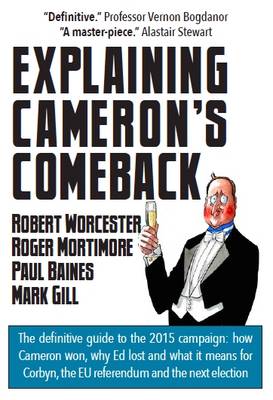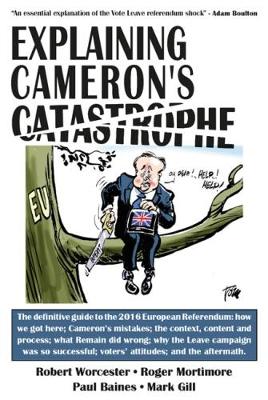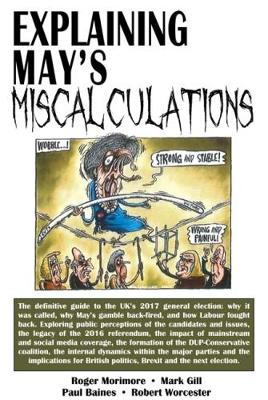The 'Explaining'
3 primary works
Book 5
Explaining Cameron's Comeback
by Robert Worcester, Robert Mortimore, Paul Baines, and Mark Gill
Published 5 January 2016
Explaining Cameron's Comeback uses expert analyses of hundreds of surveys and focus groups run by Ipsos MORI to make sense of the 2015 election campaign from the voters perspective: What we really thought of Cameron and Miliband; how Dave won and why Ed did not; why it made sense to go negative; and why the pundits read the polls wrong. They also show what the 2015 election result means for the next five years of British politics, from the European Referendum and Jeremy Corbyn's Labour party, to the implications for the 2020 election.
Book 6
Explaining Cameron's Catastrophe
by Robert Worcester, Roger Mortimore, Paul Baines, and Mark Gill
Published 28 September 2017
Explaining Cameron's Catastrophe uses expert analyses of hundreds of surveys and focus groups run by Ipsos MORI to make sense of the UK's 2016 EU referendum: how we got here; the context, content and process; lessons from 1975; what remain did wrong; why the leave campaign was so successful; voters attitudes; and the aftermath. They also show what the 2016 referendum result, and life without the EU, means for the future of the UK.
Book 7
Explaining May's Miscalculations
by Robert Worcester, Roger Mortimore, Paul Baines, and Mark Gill
Published 28 September 2018
Explaining May's Miscalculation is the definitive guide to the UK's 2017 general election. It uses expert commentary and analyses of hundreds of surveys and focus groups run by Ipsos MORI to make sense of why it was called, why May's gamble back-fired, and how Labour fought back.
It explores public perceptions of the candidates and issues, the legacy of the 2016 referendum, the impact of mainstream and social media coverage, the formation of the DUP-Conservative coalition, the internal dynamics within the major parties and the implications for British politics, Brexit and the next election.
It explores public perceptions of the candidates and issues, the legacy of the 2016 referendum, the impact of mainstream and social media coverage, the formation of the DUP-Conservative coalition, the internal dynamics within the major parties and the implications for British politics, Brexit and the next election.


